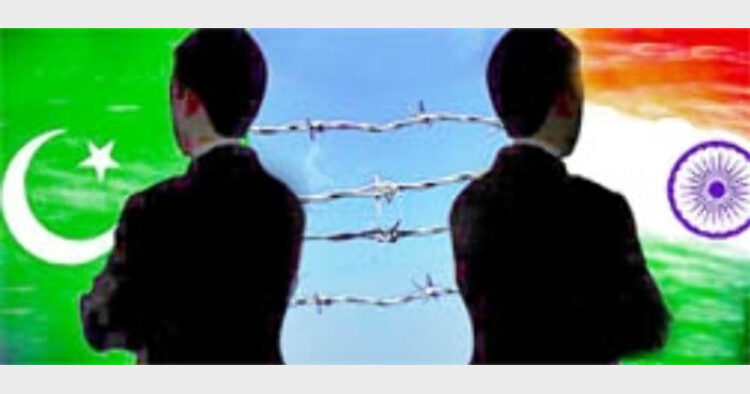The Moving Finger Writes: Is there a ‘Future’ for Indo-Pak Relations?
Intro: Under such circumstances wouldn’t it be wise on the part of Narendra Modi to frankly discuss the Kashmir issue with President Obama.
The recent decision by the Government of India to call off talks on the Kashmir issue at the Foreign Secretary level has raised many questions in the media.
Guesswork provides some possible answers. Reason One: Even if it took its own time Delhi wanted to show that it takes seriously ceaseless violations by Pak forces of the international border in Jammu and Samba districts.
Reason Two: Delhi wants to make it clear that enough is enough and that no future talks will be held if Pakistan Border Forces indulge even in the slightest violation. Reason Three: No more discussions are really necessary given past history of Pakistan violation of border lines. Let us remember that on the very first day in office, the new Indian Army Chief General Dalbir Singh Suhag made it clear that in future any Pakistan action (such as beheading of an Indian soldier) would be met in “more than adequate, intense and immediate” measure. What does it presage?
In such circumstances, the question may well be asked: If talks, then, are held to be useless and largely unproductive, where do we go from here? If after all talks, Pakistan continues border violation, does it mean – if we take General Dalbir Singh Suhag’s statement seriously – that Indian reaction would be “adequate, intense and immediate?” If in future India’s reaction will be one of tit-for-tat, will that end up in a short war? Is it war that we ultimately have to face? That is a frightening thought. One expert on Indo-Pak relations raised an important point the other day. He said: “If meeting separatists is seen as an ‘unacceptable interference – as it violates New Delhi’s position that Jammu & Kashmir is an integral part of India, then discussing Kashmir bilaterally also does not make sense.” How right he is. What would a Foreign Secretaries meet really discuss when such discussions have taken place time and again in the past with no positive result?
Besides, one may ask: Why was Pakistan behaving so irresponsibly just when the Foreign Secretaries were due to meet? What does Islamabad have in mind? Was it telling India that the Pakistan Army is not interested in arriving at any solution and that it wants Nawaz Sharif to quit as Pakistan’s Prime Minister?
Both Imran Khan, leader of Pakistan Tehreek-i-Insaaf and the maverick preacher Tahirul Qadri, heading the Pakistan Awami Tehreek have been pushing their anti-Sharif stand hard, giving the impression that both have the support of the Army. If this is the case, in what way would Indo-Pak talks at any level – secretarial or Prime Ministerial – help in resolving the Kashmir issue? The Pakistani official – call it military – view has already been expressed, namely that Jammu & Kashmir does not belong to India. Then why hold any talks at all?
Then arises the larger question: Will Pakistan then remain quiet or will it continue to indulge in cross-border violations a permanent habit just to annoy India? The answer to it may sound outlandish, but there is a limit even to Indian patience, which has been endlessly tested during these last seven decades. A short and calculated war may remain the ultimate solution. But will that really help?
In his remarkable book, The Warrior State, T V Paul (McGill Professor of International Relations at McGill University, Montreal) makes the point that one answer, acceptable to both India and Pakistan could be to give “maximum autonomy to the Kashmiris but without radically revising territorial boundaries” (as General Musharraf had figured out). But will India accept it as a way out? Will Pakistan? Besides, who represents Pakistan? And how does one define “maximum autonomy?”
Significantly, in his chapter on Jawaharlal Nehru in a book which Ramachandra Guha has edited (Makers of Modern Asia) he states that “from notes written by officials, it seems that Nehru was once thinking seriously of a confederation among India, Pakistan and Kashmir.” Can that be a solution worth discussing?
Considering the Pakistan Army’s current stand, it would seem the only way out would be to bring the United States in the picture – a state of affairs which has never been acceptable to India which wants no outsider interference in what is considered as purely Indo-Pak problem.
M V Kamath (The writer is a senior journalist and former editor of Illustrated Weekly)














Comments